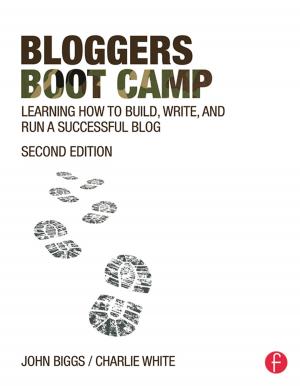Evangelicalism
An Americanized Christianity
Nonfiction, Religion & Spirituality, Philosophy, Christianity| Author: | Richard Kyle | ISBN: | 9781351321662 |
| Publisher: | Taylor and Francis | Publication: | September 20, 2017 |
| Imprint: | Routledge | Language: | English |
| Author: | Richard Kyle |
| ISBN: | 9781351321662 |
| Publisher: | Taylor and Francis |
| Publication: | September 20, 2017 |
| Imprint: | Routledge |
| Language: | English |
Most forms of religion are best understood in the con- text of their relationship with the surrounding culture. This may be particularly true in the United States. Certainly immigrant Catholicism became Americanized; mainstream Protestantism accommodated itself to the modern world; and Reform Judaism is at home in American society. In Evangelicalism, Richard Kyle explores paradoxical adjustments and transformations in the relationship between conservative Protestant Evangelicalism and contemporary American culture.
Evangelicals have resisted many aspects of the modern world, but Kyle focuses on what he considers their romance with popular culture. Kyle sees this as an Americanized Christianity rather than a Christian America, but the two are so intertwined that it is difficult to discern the difference between them. Instead, in what has become a vicious self-serving cycle, Evangelicals have baptized and sanctified secular culture in order to be considered culturally relevant, thus increasing their numbers and success within abundantly populous and populist-driven American society. In doing so, Evangelicalism has become a middle-class movement, one that dominates America's culture, and unabashedly populist.
Many Evangelicals view America as God's chosen nation, thus sanctifying American culture, consumerism, and middle-class values. Kyle believes Evangelicals have served themselves well in consciously and deliberately adjusting their faith to popular culture. Yet he also thinks Evangelicals may have compromised themselves and their future in the process, so heavily borrowing from the popular culture that in many respects the Evangelical subculture has become secularism with a light gilding of Christianity. If so, he asks, can Evangelicalism survive its own popularity and reaffirm its religious origins, or will it assimilate and be absorbed into what was once known as the Great American Melting Pot of religions and cultures? Will the Gospel of the American dream ultimately engulf and destroy the Gospel of Evangelical success in America?
This thoughtful and thought-provoking volume will interest anyone concerned with the modern-day success of the Evangelical movement in America and the aspirations and fate of its faithful.
Most forms of religion are best understood in the con- text of their relationship with the surrounding culture. This may be particularly true in the United States. Certainly immigrant Catholicism became Americanized; mainstream Protestantism accommodated itself to the modern world; and Reform Judaism is at home in American society. In Evangelicalism, Richard Kyle explores paradoxical adjustments and transformations in the relationship between conservative Protestant Evangelicalism and contemporary American culture.
Evangelicals have resisted many aspects of the modern world, but Kyle focuses on what he considers their romance with popular culture. Kyle sees this as an Americanized Christianity rather than a Christian America, but the two are so intertwined that it is difficult to discern the difference between them. Instead, in what has become a vicious self-serving cycle, Evangelicals have baptized and sanctified secular culture in order to be considered culturally relevant, thus increasing their numbers and success within abundantly populous and populist-driven American society. In doing so, Evangelicalism has become a middle-class movement, one that dominates America's culture, and unabashedly populist.
Many Evangelicals view America as God's chosen nation, thus sanctifying American culture, consumerism, and middle-class values. Kyle believes Evangelicals have served themselves well in consciously and deliberately adjusting their faith to popular culture. Yet he also thinks Evangelicals may have compromised themselves and their future in the process, so heavily borrowing from the popular culture that in many respects the Evangelical subculture has become secularism with a light gilding of Christianity. If so, he asks, can Evangelicalism survive its own popularity and reaffirm its religious origins, or will it assimilate and be absorbed into what was once known as the Great American Melting Pot of religions and cultures? Will the Gospel of the American dream ultimately engulf and destroy the Gospel of Evangelical success in America?
This thoughtful and thought-provoking volume will interest anyone concerned with the modern-day success of the Evangelical movement in America and the aspirations and fate of its faithful.















